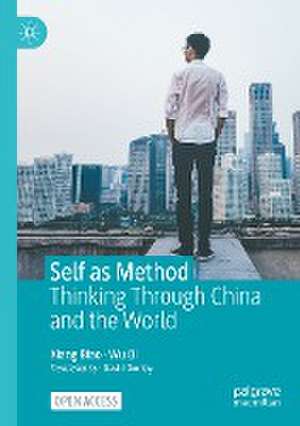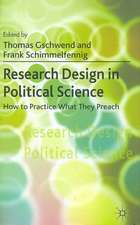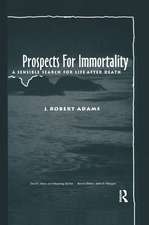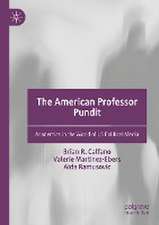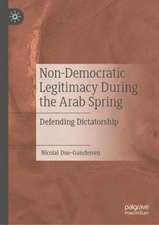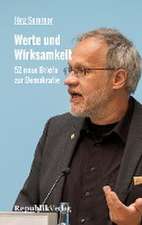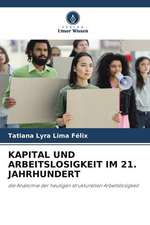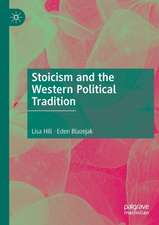Self as Method: Thinking Through China and the World
Autor Biao Xiang, Qi Wu Traducere de David Ownbyen Limba Engleză Paperback – oct 2022
| Toate formatele și edițiile | Preț | Express |
|---|---|---|
| Paperback (1) | 280.54 lei 22-36 zile | +20.01 lei 6-12 zile |
| Springer Nature Singapore – oct 2022 | 280.54 lei 22-36 zile | +20.01 lei 6-12 zile |
| Hardback (1) | 359.79 lei 22-36 zile | +26.39 lei 6-12 zile |
| Springer Nature Singapore – oct 2022 | 359.79 lei 22-36 zile | +26.39 lei 6-12 zile |
Preț: 280.54 lei
Nou
Puncte Express: 421
Preț estimativ în valută:
53.68€ • 56.20$ • 44.42£
53.68€ • 56.20$ • 44.42£
Carte disponibilă
Livrare economică 17-31 martie
Livrare express 01-07 martie pentru 29.100 lei
Preluare comenzi: 021 569.72.76
Specificații
ISBN-13: 9789811949555
ISBN-10: 9811949557
Pagini: 268
Ilustrații: VII, 268 p. 1 illus.
Dimensiuni: 148 x 210 x 19 mm
Greutate: 0.34 kg
Ediția:1st ed. 2023
Editura: Springer Nature Singapore
Colecția Palgrave Macmillan
Locul publicării:Singapore, Singapore
ISBN-10: 9811949557
Pagini: 268
Ilustrații: VII, 268 p. 1 illus.
Dimensiuni: 148 x 210 x 19 mm
Greutate: 0.34 kg
Ediția:1st ed. 2023
Editura: Springer Nature Singapore
Colecția Palgrave Macmillan
Locul publicării:Singapore, Singapore
Cuprins
1. Introduction.- Part I. Beijing Interview, March 2018.- 2. Setting the Stage.- 3. Childhood Picture.- 4. The 1980s Culture Craze.- 5. Beida after 1989.- 6. Researching Zhejiang Village.- 7. Youth Melancholy.- 8. The Center and the Margins.- 9. Personal Crisis.- 10. Globalization and Anti-Globalization.- 11. Using the 1980s to Critique the 1980s.- 12. What is Criticism?.- 13. Empathetic Scholarship.- Part II. Oxford Interview, August 2018.- 14. Setting the Stage.- 15. Impressions of Oxford.- 16. A Sense of Distance and Directness.- 17. Anthropologists and their World.- 18. Non-Fiction Writing.- 19. Academics is not a vocation.- 20. Nationalism and Populism.- 21. Singapore Enlightenment.- 22. The Importance of Community.- 23. Building your own Cross-Border Worlds.- 24. Universities Should Look for the Exceptional.- 25. Problematizing Individual Experience.-26. New Research.- 27. Common Ideals.- 28. Local Gentry as Method.- Part III. Wenzhou Interview, December 2018.- 29. Setting the Stage.- 30. Social Reproduction.- 31. The Paradox of Class Mobility.- 32. Looking for a New Discourse.- 33. Anthropology as Intermediary.- 34. The Local Gentry: Once More with Feeling.
Notă biografică
Xiang Biao is a social anthropologist who was born and educated in China and now the director of the Max Planck Institute for Social Anthropology.
Wu Qi is a journalist and an editor of ‘One Way Street,’ a Chinese literary magazine.
David Ownby is a full professor, Department of History, Centre d’études de l’Asie de l’Est, Université de Montréal.
Wu Qi is a journalist and an editor of ‘One Way Street,’ a Chinese literary magazine.
David Ownby is a full professor, Department of History, Centre d’études de l’Asie de l’Est, Université de Montréal.
Textul de pe ultima copertă
Despite China’s rise to the status of global power, many Chinese youths are anxious about their personal future, in large measure because the rapid changes have left them feeling adrift. This book, available in open access, provides a manifesto of intellectual activism that counsels China’s young people to think by themselves and for themselves. Consisting of three conversations between Xiang Biao, a social anthropologist, and Wu Qi, a rising journalist, the book probes how China has reached its current stage and how young people can make changes. The conversations touch on issues of mobility, education, family, relations between the self and the authority, centers and margins, China, and the world. The Chinese version was named the “most impactful book of 2021” by Douban, China’s premier website for rating books, films, and music. The English version is translated by David Ownby, who also penned an introduction.
Xiang Biao is a social anthropologist who was born and educated in China and now the director of the Max Planck Institute for Social Anthropology.
Wu Qi is a journalist and an editor of ‘One Way Street,’ a Chinese literary magazine.
David Ownby is a full professor, Department of History, Centre d’études de l’Asie de l’Est, Université de Montréal.
Xiang Biao is a social anthropologist who was born and educated in China and now the director of the Max Planck Institute for Social Anthropology.
Wu Qi is a journalist and an editor of ‘One Way Street,’ a Chinese literary magazine.
David Ownby is a full professor, Department of History, Centre d’études de l’Asie de l’Est, Université de Montréal.
Caracteristici
Collects reflections about how to think about China Takes us on a whirlwind tour of the questions that China is thinking about today Presents urban–rural divide, the problems of corruption in development, and the role of the CCP This book is open access, which means that you have free and unlimited access
